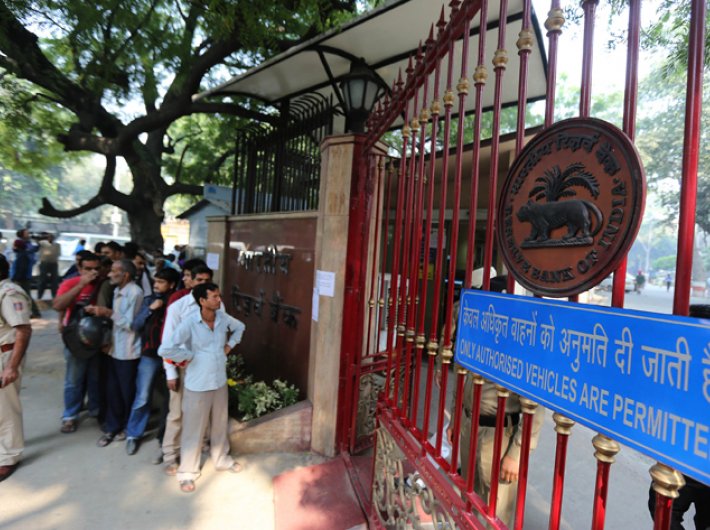The government seems to have failed in meeting the objective of exposing black money
India is in the throes of an unprecedented social experiment in enforced digital disruption, and the world has much to learn from it, said an article: ‘India’s Botched War on Cash’, that appeared in the Harvard Business Review.
Prime minister Narendra Modi’s war on cash is not without international precedent: Singapore, for example, withdrew its largest currency recently; the European Central Bank eliminated the 500-euro bank note; South Korea plans to eliminate at least all coins by 2020.
“And yet India’s initiative had the potential for chaos. Here’s why: the government effectively took 86% of cash out of circulation in an economy that is close to 90% cash-reliant.”
The article said that one of Modi’s strongest motivations for this action was corruption — to expose undeclared “black” money, i.e. income illegally obtained or not declared for tax purposes, in Asia’s third-largest economy. “But the government seems to have failed in meeting this objective.”
As of December 3, about 82% of the demonetised bills, amounting to about $185 billion, had been deposited in bank accounts and validated to be legitimately earned money (or legitimised after any additional taxes owed are accounted for). In other words, very little of the estimated $2 trillion black money estimated to be stashed overseas has been captured.
It said that retail and wholesale markets have stalled around the country. “Supply chain transactions, real estate deals, and even weddings and funerals have been frozen. Consumers are coping with lines that are frustrating even for Indians used to standing in lines or waiting for basic services. People up and down the income spectrum are dealing with changing cash withdrawal policies and empty ATMs. The nation’s status as the world’s fastest-growing big economy has been severely imperilled and its currency risks being further devalued, a situation made worse by prospects of a strengthening dollar after the US election.”
The article went on to say that this is an unusual form of digital disruption of an enforced kind, about as far as one can get from the textbook kind.
This drastic shift affects the world’s fastest growing large economy, a population of 1.25 billion, and consumers whom we have identified as bearers of some of the highest “cost of cash” in the world. In other words, if a significant amount of the country’s payments were digitised, the benefits would be monumental.
This disruption originates not from one of the e-wallet insurgents or from one of the global payments mega-players, but has been engineered top-down by the government, it added.
“The biggest beneficiaries of this disruption, arguably, would be the incumbents, i.e. Reserve Bank of India, India’s central bank, and the banking institutions. According to our study, the Cost of Cash in India, these institutions spend $3.5 billion annually in currency operations costs.
“Ironically, the primary losers in this disruption, at least in the near term, are the consumers themselves. The disruptive action did not originate in a small segment of the market; it was launched nationwide. The burden has been regressive, as it has been hardest on the poor and the unbanked, who have had to forgo wages to stand in lines or have lost jobs because of non-functioning markets.”
The article said that India’s ties to cash are strong, even by developing country standards. “India uses a lot of cash by any measure. Our Cost of Cash in India study found a remarkably high level of cash usage even when compared with other emerging markets and otherwise digitally under-evolved countries, according to our Digital Evolution Index... The ratio of money held in bills and coins to the amount held in demand deposit and savings accounts in India was 51%, as compared to Egypt (29.3%), South Africa (8.9%), and Mexico (8.7%). Moreover, the value of notes and coins in circulation as a percentage of GDP in India was 12.04%, compared to 3.93% in Brazil, 5.32% in Mexico, and 3.72% in South Africa.”
It also noted that most Indians lacked the means to use non-cash payments, even if they want to. India’s infrastructure for payments was growing, but from very modest beginnings. Fewer than 35% of Indians above the age of 15 had used a bank account. Less than 10% had ever used any kind of non-cash payment instrument. Less than 3% of the value transacted used cards in the year ending March 2014. The growth in value of ATM transactions had far outpaced the growth in the value of card payment transactions.
Moreover, in India, the total value of ATM transactions increased more than five times between 2007 and 2012, from about 3 trillion to about 18 trillion rupees, while the value of card transactions barely doubled in the same period from 1 to 2 trillion rupees. Despite the improvement in telecommunications, India lagged its peers in mobile payments. Fewer than 2% of Indians had used a mobile phone to receive a payment, compared to over 60% of Kenyans and 11% of Nigerians.
